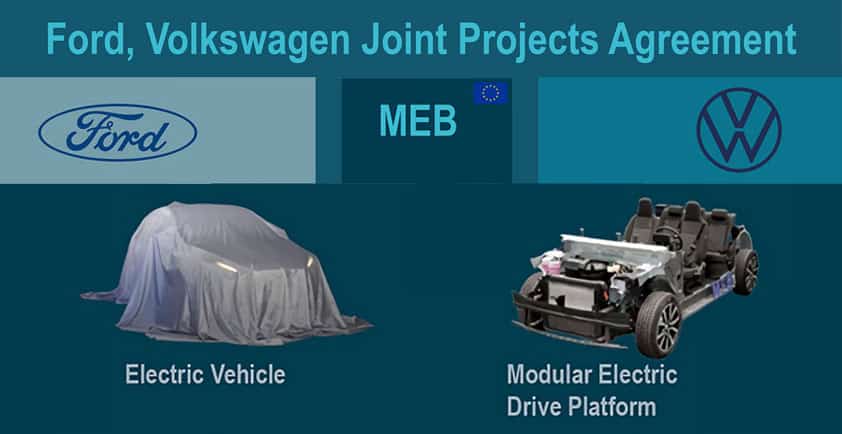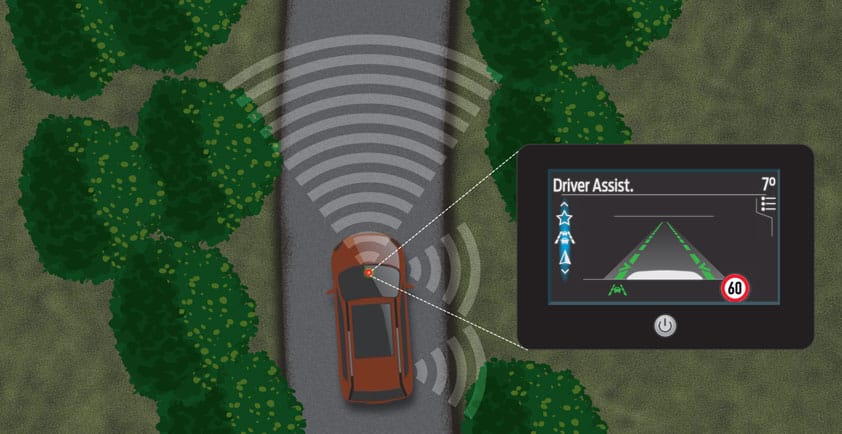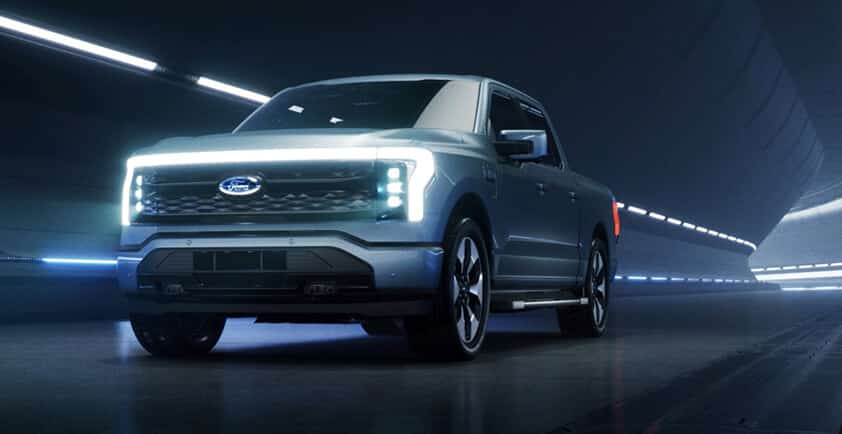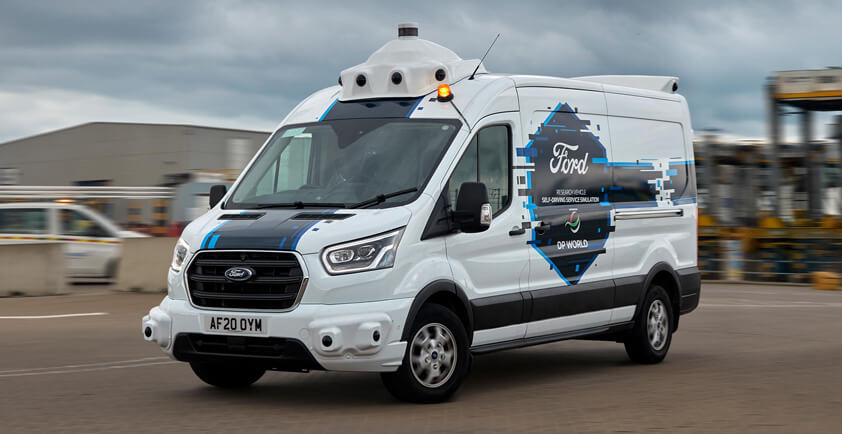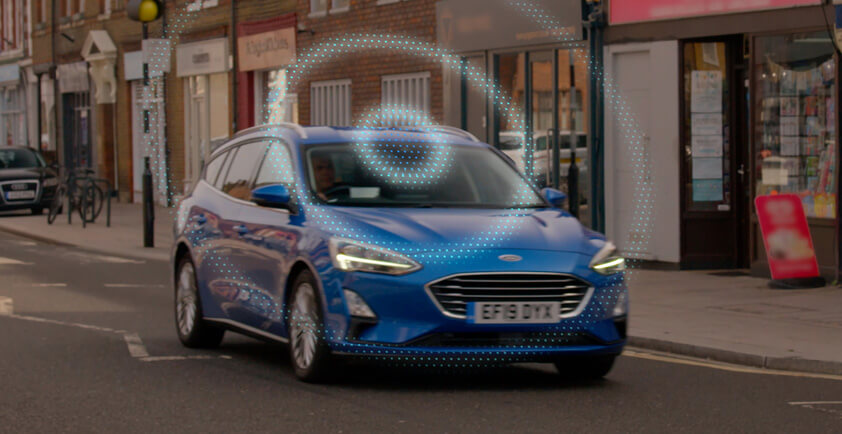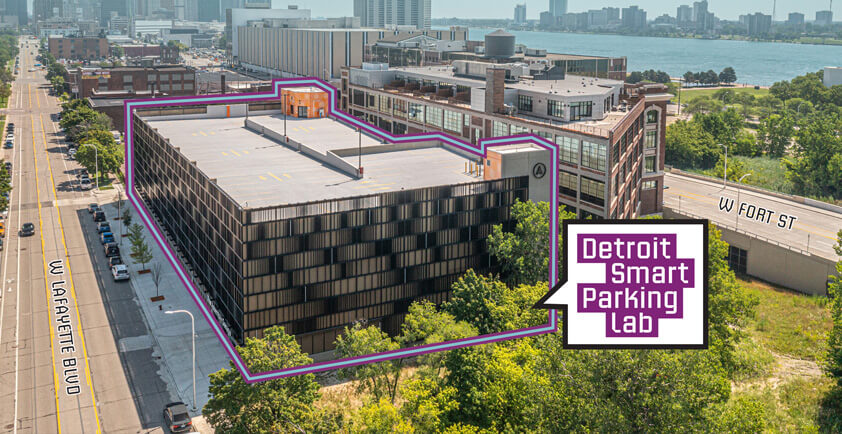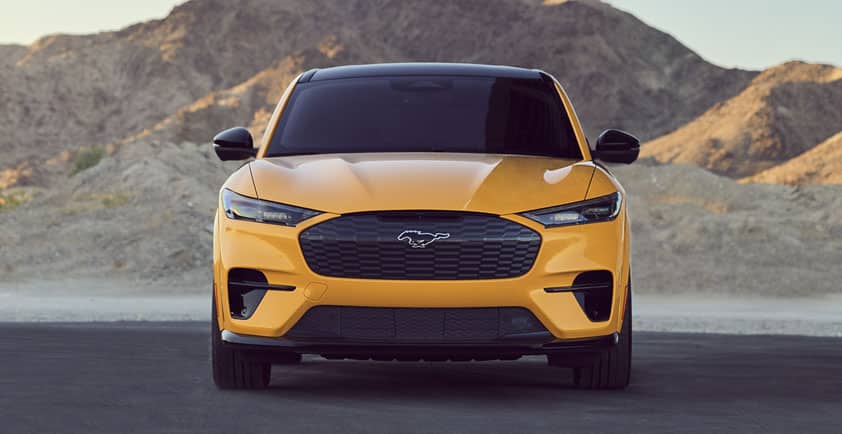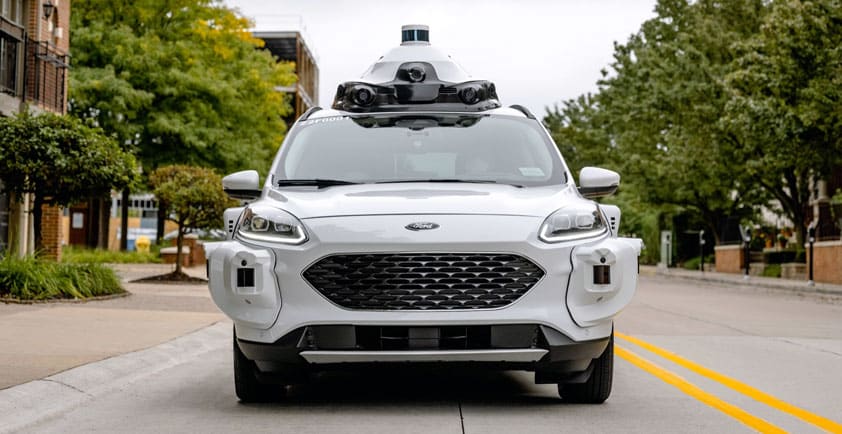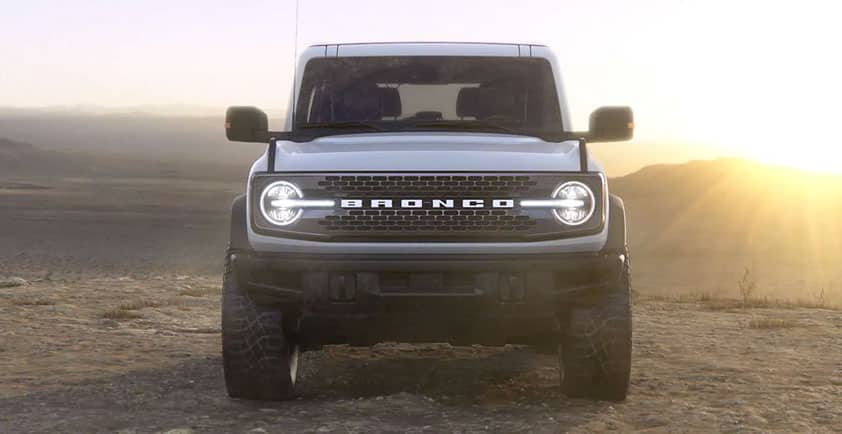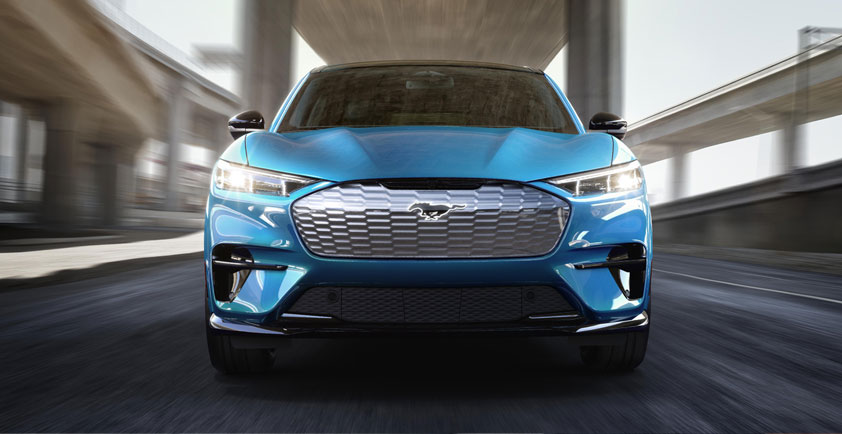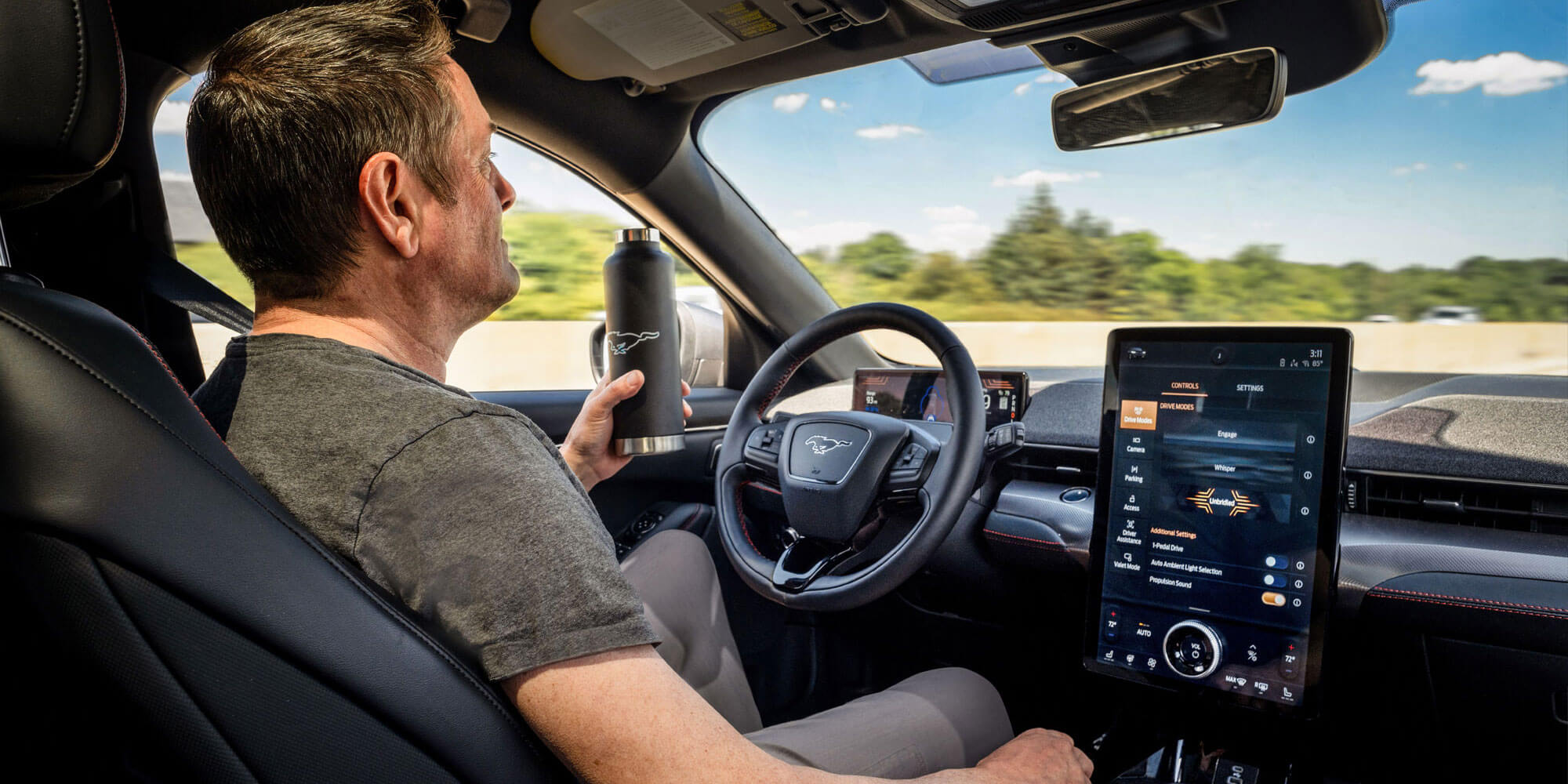
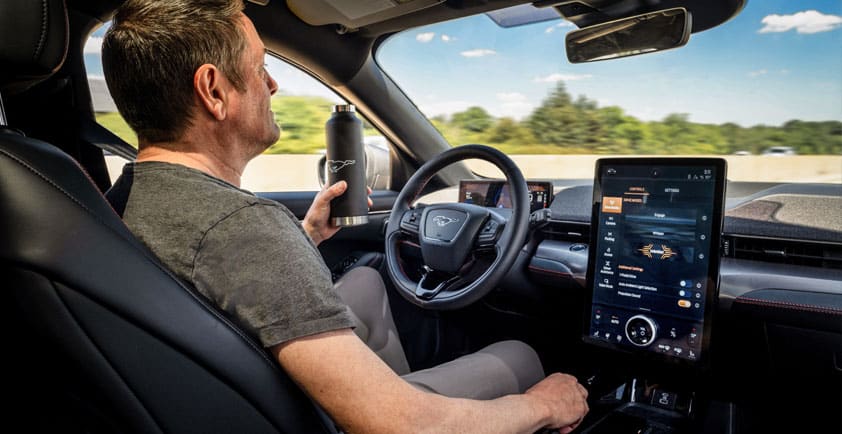
FORD CO-PILOT360™ TECHNOLOGY ADDS HANDS-FREE DRIVING, OVER-THE-AIR UPDATES AND MORE TO HELP FORD CUSTOMERS FEEL MORE RELAXED AND CONFIDENT
>> Ford Co-Pilot360™ Technology – a comprehensive collection of available driver-assist features – adds and improves offerings including Active Drive Assist, which allows for hands-free driving on more than 100,000 miles of divided highways in all 50 states and Canada
>> Available Active Drive Assist is complemented by an advanced driver-facing camera, which tracks head position and driver eye gaze, even while wearing most sunglasses
>> All-electric Mustang Mach-E is the first opportunity for customers to order Ford Co-Pilot360™ Active 2.0 Prep Package that includes camera and radar hardware with flexibility to separately purchase Active Drive Assist as an over-the-air software update next year
>> Ford engineers and test drivers have accumulated more than 650,000 miles testing tech like Adaptive Cruise Control and Blind Spot Information System with Cross-Traffic Alert to ensure these radar- and camera-based features work in as many real-world scenarios as possible
Dearborn, MI – Ford Co-Pilot360™ Technology – a comprehensive collection of available driver-assist features – adds new offerings including Active Drive Assist, allowing for hands-free driving on more than 100,000 miles of divided highways in all 50 states and Canada.
“The stress of long highway drives remains a huge issue for drivers around the world,” said Hau Thai-Tang, Ford’s chief product development and purchasing officer. “By introducing driver-assist technologies like Active Drive Assist, Ford’s version of hands-free driving, we’re allowing our customers to feel more confident whenever they’re behind the wheel.”
Active Drive Assist is the next evolution of Intelligent Adaptive Cruise Control with Lane Centering from Ford, adding a first-for-Ford Hands-Free Mode with the potential for more enhancements in the future.
Hands-Free Mode allows drivers on certain sections of pre-mapped, divided highways to drive with their hands off the steering wheel – if they continue to pay attention to the road ahead – granting them an additional level of comfort during long drives.
An advanced infrared driver-facing camera will track eye gaze and head position to ensure drivers are paying attention to the road while in Hands-Free Mode as well as hands-on Lane Centering Mode, which works on any road with lane lines. Drivers will be notified by visual prompts on their instrument cluster when they need to return their attention to the road or resume control of the vehicle.
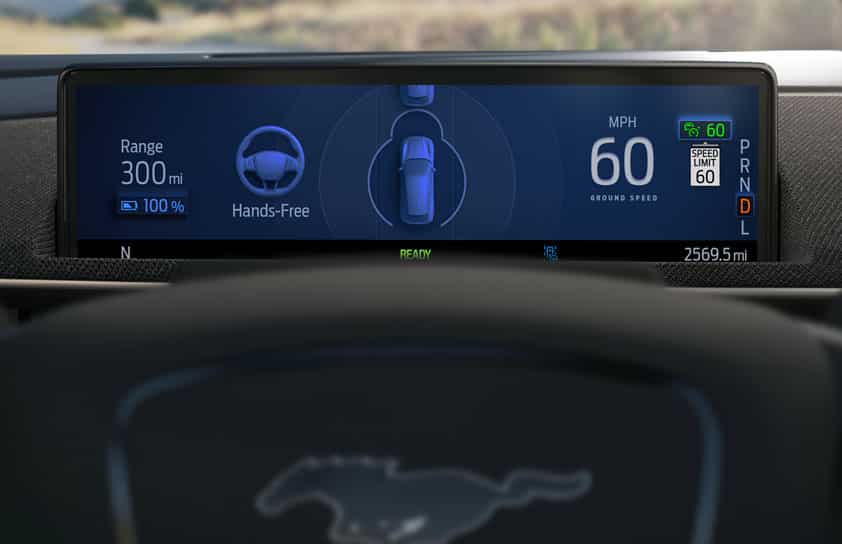
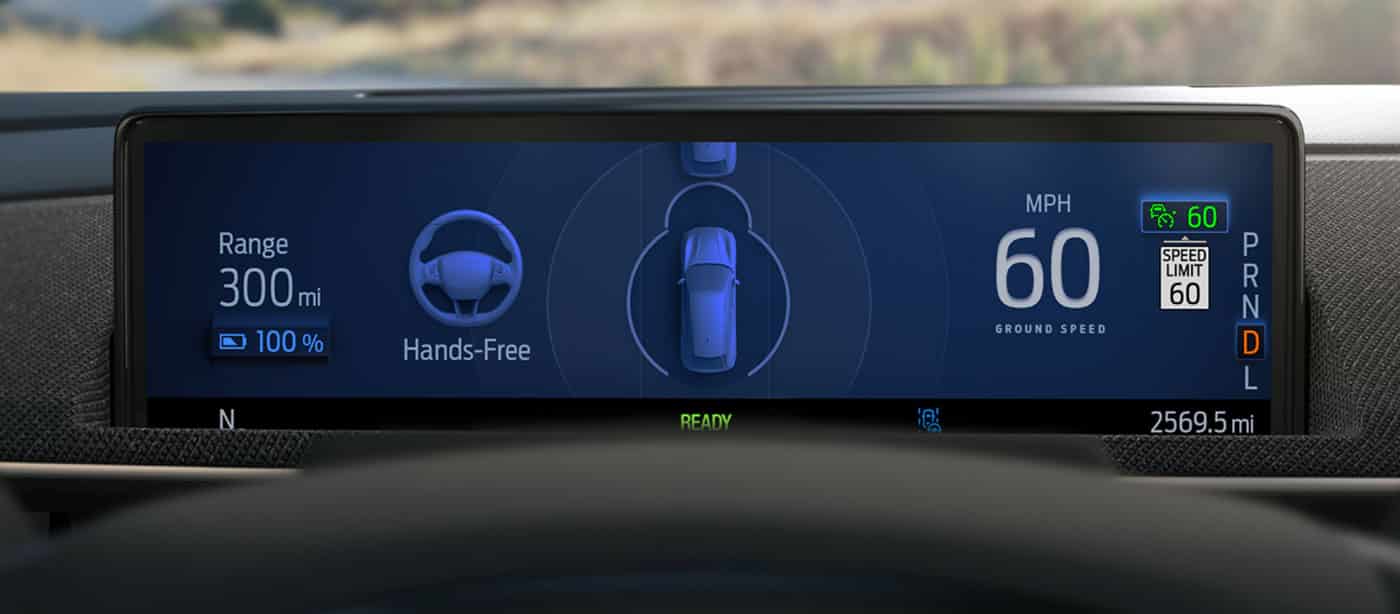
“Introducing Active Drive Assist with a driver-facing camera makes perfect sense because the vehicle helps relieve the stress and burden of driving but still leaves you fully in control,” said Thai-Tang. “And if you lose focus on the road ahead, Active Drive Assist will automatically warn and potentially slow the vehicle down until you’re ready to focus back up.”
Active Drive Assist begins rolling out on select 2021 model year Ford vehicles and will be available across the Mustang Mach-E lineup.
For those customers among the first to order a Mustang Mach-E, Active Drive Assist hardware will be available as part of the Ford Co-Pilot360 Active 2.0 Prep Package at time of purchase.
Ford plans to give customers who purchase the prep package the opportunity to purchase Active Drive Assist software and receive the feature at a Ford dealer or via an over-the-air update expected in the third quarter of 2021.2
The Ford Co-Pilot360 Active 2.0 Prep Package also includes Active Park Assist 2.0, the latest iteration of park-assist technologies to give drivers some peace of mind when parking their Mustang Mach-E. With Active Park Assist 2.0, simply holding a button will allow the vehicle to take control of parking in parallel and perpendicular spaces with ease. It also offers Park Out Assist with side-sensing capability so drivers can confidently navigate out of a parking spot when someone’s parked too close.
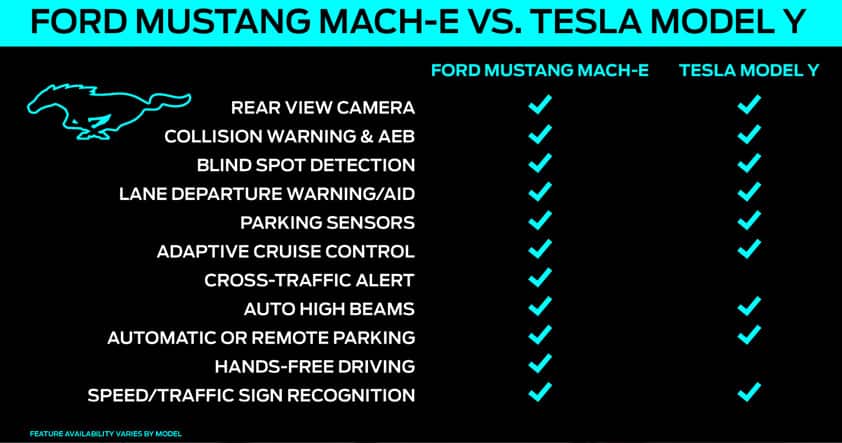
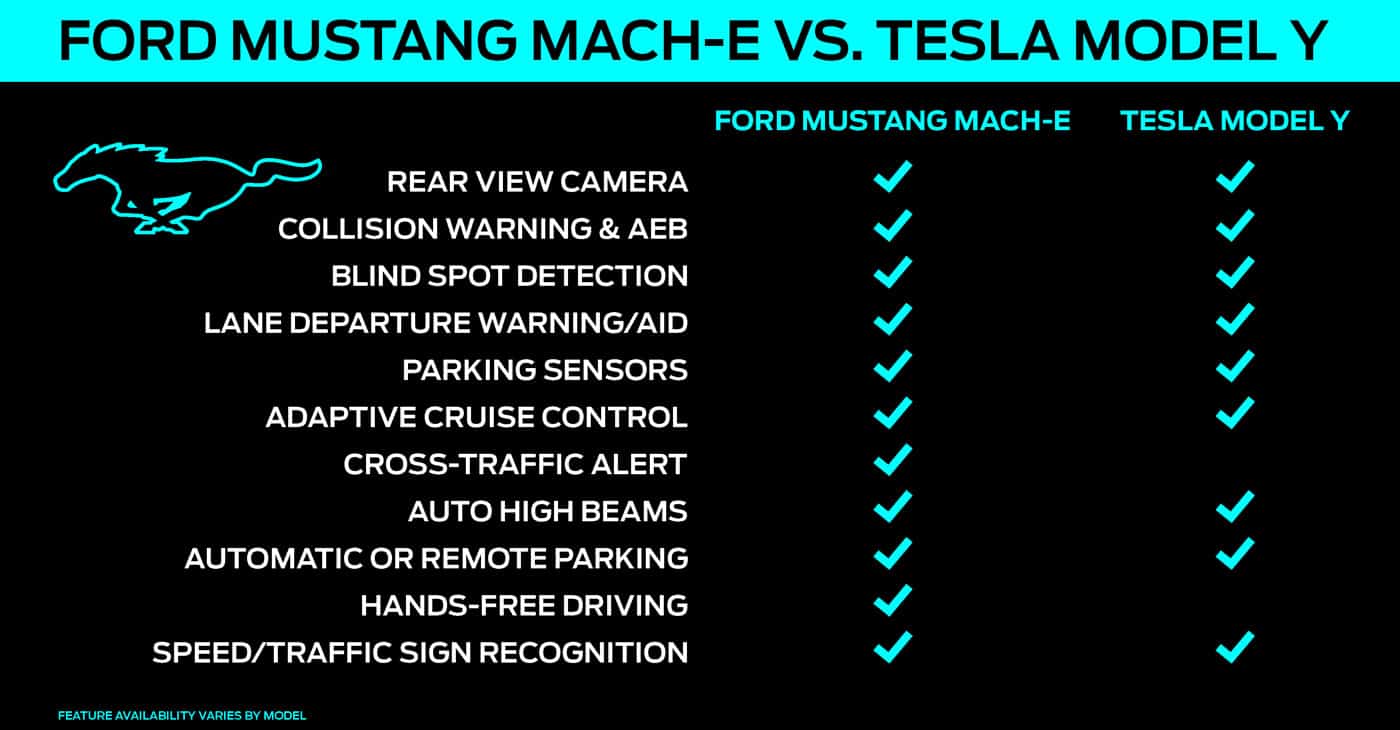
Confidence-Driving Technology
Mustang Mach-E’s Ford Co-Pilot360 2.0 standard package includes two enhancements to Ford’s Lane-Keeping System: Road Edge Detection and Blind Spot Assist.
Road Edge Detection can increase driving confidence in rural areas by sensing the edges of a lane with visible lines or road with a clear edge, such as grass or dirt. The technology can then alert the driver if the vehicle is starting to drift out of the lane or off the road. Blind Spot Assist identifies vehicles in a blind spot with a light on the side view mirror, and then applies a nudge in the vehicle’s steering system to help provide caution against an unsafe action.
The updated Lane-Keeping System joins Auto High-Beam Headlamps, Blind Spot Information System with Cross-Traffic Alert, Pre-Collision Assist with Automatic Emergency Braking, Post-Collision Braking, Rear View Camera, Reverse Brake Assist and Reverse Sensing System as technologies on the Mustang Mach-E Ford Co-Pilot360 2.0 standard package.
On Mustang Mach-E’s standard Ford Co-Pilot360 Assist 2.0 package is an advancement in Intelligent Adaptive Cruise Control with Stop and Go, which slows down a vehicle if the traffic ahead has stopped or slowed, bringing the vehicle to a complete stop before resuming as traffic begins to move.
Previously the technology required driver reactivation after a vehicle is stopped for three seconds, the advancement now resumes driving if stopped for up to 30 seconds. Intelligent Adaptive Cruise Control also includes Speed Sign Recognition.
Intersection Assist employs the camera and radar sensor technology used by Pre-Collision Assist with Automatic Emergency Braking to detect oncoming traffic while attempting to turn left. If there’s a risk of a potential collision with an oncoming vehicle, the vehicle can alert the driver and apply the brakes.
Standard and available packages vary by nameplate, and those packages will be announced closer to on-sale dates for 2021 model year vehicles.
Extensive testing
Ford has put Active Drive Assist through its paces to create a driving experience that customers can be confident in – one that’s actually hands-free as long as the driver-facing camera can monitor head position and eye gaze instead of relying only on monitoring driver attention through steering wheel grip, as other systems do.
Ford subjected its Active Drive Assist test vehicles to the Mother of All Road Trips, exposing its sensors to snow, rain, bright sun, dark nights, traffic jams and open roads over hundreds of thousands of miles across the U.S., Canada and Europe in an attempt to expose the sensors to a variety of extremely specific scenarios – or gray areas – so the technology is as ready to handle the array of real-world conditions drivers face daily.
“Our team has aggressively tested Active Drive Assist to bring something to our customers’ lives that they can trust,” said Justin Teems, Active Drive Assist feature lead. “We go to far-flung places around the U.S. and Canada – from Florida to California, from Quebec to Texas, Wyoming and Idaho – to try to stimulate those rare-case sensor measurements we might not get anywhere else, capturing data in a number of different ways.”
